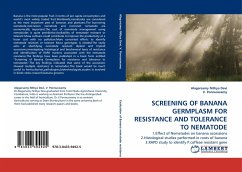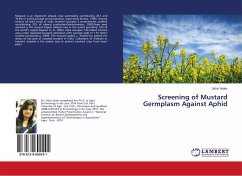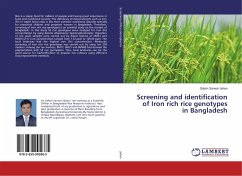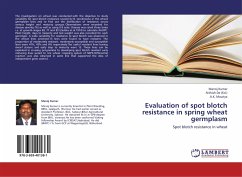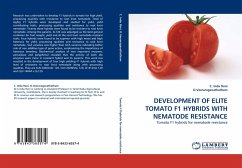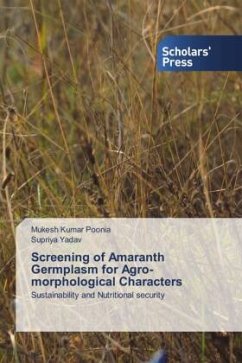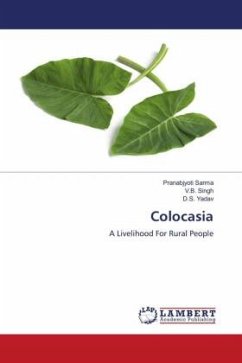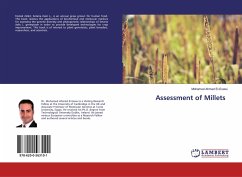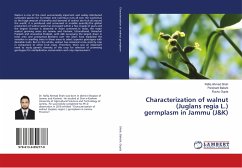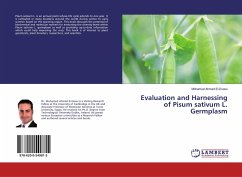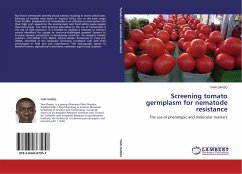
Screening tomato germplasm for nematode resistance
The use of phenotypic and molecular markers
Versandkostenfrei!
Versandfertig in 6-10 Tagen
39,99 €
inkl. MwSt.

PAYBACK Punkte
20 °P sammeln!
Root-knot nematodes severely attack tomato resulting in severe yield losses. Estimate of tomato crop losses in Tropical Africa due to the pest range from 24-38%. Employment of nematicides is an effective control option but their high cost, assault on the environment and food safety issues negate their patronage. The most practical alternative to the use of nematicides is the use of host-resistance. It is feasible to multiply a resistant or tolerant variety identified for supply to resource-challenged peasant farmers to increase tomato production in developing countries. Six resistant tomato cu...
Root-knot nematodes severely attack tomato resulting in severe yield losses. Estimate of tomato crop losses in Tropical Africa due to the pest range from 24-38%. Employment of nematicides is an effective control option but their high cost, assault on the environment and food safety issues negate their patronage. The most practical alternative to the use of nematicides is the use of host-resistance. It is feasible to multiply a resistant or tolerant variety identified for supply to resource-challenged peasant farmers to increase tomato production in developing countries. Six resistant tomato cultivars - FLA 505-BL 1172, 2641A, Adwoa deede, Terminator FI, Tima and 2644A, identified in the molecular screening correlated well with their phenotypes in field and pot experiments. This monograph stands to benefit farmers, agricultural researchers, extension agents and students.



